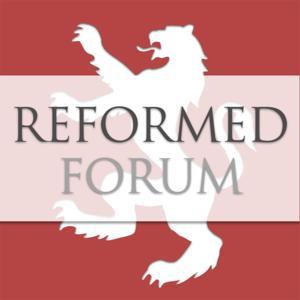Episode Synopsis:
I am reluctant to say that one portion of Scripture is more important than others. But there are biblical passages packed with theological content and which have stirred much debate among the people of God across time, as does our text for this episode, 2 Corinthians 5:14-6:2. In this section, Paul lays out what might just be the big picture thesis statement for Paul’s Gentile mission–and perhaps even for the entire New Testament–1 Corinthians 5:19- “In Christ God was reconciling the world to himself, not counting their trespasses against them, and entrusting to us the message of reconciliation.” Christ’s redemptive mission is made clear–he came to save sinners, not help us become better people nor transform culture. He also gave to the church our marching orders–preach the message of reconciliation, the basis for all Christian hope–the knowledge that God is no longer angry with us.
Reconciliation is an important matter for Paul. The term refers to removing the ground of hostility between two parties so that they might be reconciled. In this case, the human race, fallen in Adam, is estranged from the holy God because of the guilt of our sins. But Paul’s emphasis falls upon the fact that we have been reconciled to God through the saving work of Christ. This raises questions about the nature and extent of the atonement–a major point of contention between Calvinists and those who hold to some version of a universal atonement. How can Calvinists affirm that Christ died for the elect only when Paul says Jesus died for the world? But then how can those holding to a universal atonement (as do Arminians) affirm that Christ’s death does not avail for all those for whom he died? People can and do perish eternally (on this view), after Christ has died for them. We’ll discuss the debate over the nature and extent of the atonement in this episode because our text raises these important questions.
A second issue raised by Paul is eschatology. His “two Adams” doctrine (cf. Romans 5:12-21) and his eschatology of new creation culminating in a day of final judgment is set out in these verses. In Paul’s federal or representative categories, Adam represents the entirety of the human race (all), while Christ represents those truly in the new covenant (for our sake). Paul ties the new creation to the death and resurrection of Jesus Christ (v. 17) and sees it as a present reality to be fully realized on the day of salvation, when our Lord Jesus returns to raise the dead, judge the world, and usher in the fullness of new creation–a new heaven and earth. This leaves no room for a future millennial age as many assume.
When Paul speaks of a favorable time before the day of salvation, he’s referring to the mission of the church as assigned here. Christians are ambassadors for God, and are given the assignment of taking the message of reconciliation (the cross of Christ) to the ends of the earth. Paul’s instructions not only define the church’s mission and evangelistic endeavors, but he also defines the church’s message– “God was in Christ, reconciling the world to himself.” Any message proclaimed by the church other than that specifically assigned by Paul will inevitably reflect pagan influences such as those against which the Corinthians found themselves struggling. We are not to be gospel-peddlers, but preachers of Christ and him crucified!
For show notes and other recommended materials located at the Riddleblog as mentioned during the Blessed Hope Podcast, click here: https://www.kimriddlebarger.com/




































